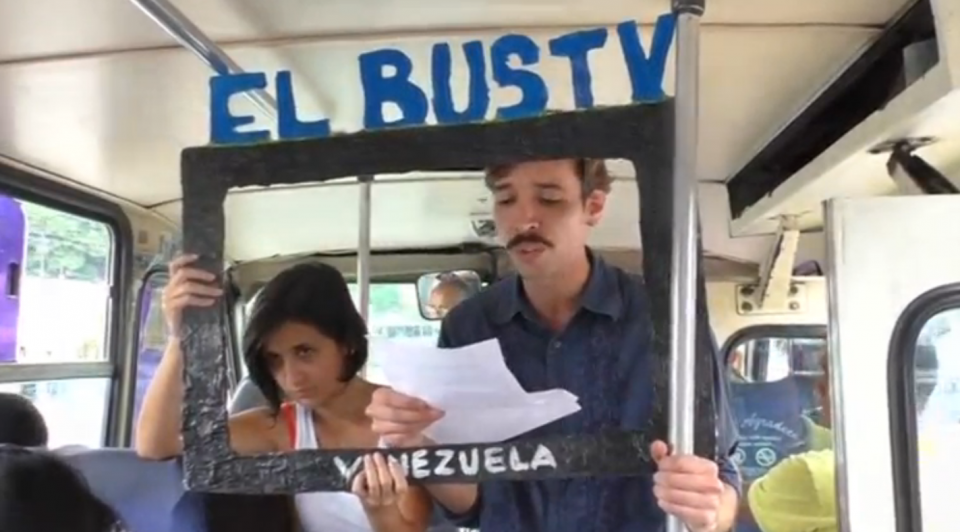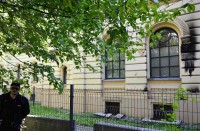
CARACAS, Venezuela (Reuters) – Returning from an anti-government protest in Caracas early May, artist Claudia Lizardo noticed that many people on the bus around her were unaware of the reasons so many had taken to the streets. Among shortages of basic goods and medicines gripping the crisis-hit nation, she noticed something else missing: information.
The result was Bus TV, a spoken news journal presented by Lizardo and other journalist- and actor-friends aboard the capital’s buses, with particular focus in the most deprived areas.
The group of five goes out twice a week, speaking through a cardboard cutout television frame and abiding by a small set of rules: not to wear clothing with any political affiliation or message, not to respond to comments from their audience, the passengers, and not to attribute the blame to any one side for at least 67 deaths which have occurred throughout two months of protests.
Contributing journalist, Laura Castillo, described the movement as respectful, adding that it did not intend to confront anyone, nor did it propose a form of dialogue with the government; it is purely informative.
According to private studies, around half of all Venezuelans have no access to social media and receive information purely through traditional media, which, since leftist President Nicolas Maduro came to power in 2013, has towed an increasingly official editorial line.
Another study carried out by the Institute of Press and Society (IPYS), shows that between 2005 and 2015, more than a hundred media outlets were taken off air or censured in Venezuela.
The Bus TV initiative has already been replicated in the states of Carabobo y Anzoategui, with independent groups in other areas promising to follow suit.







